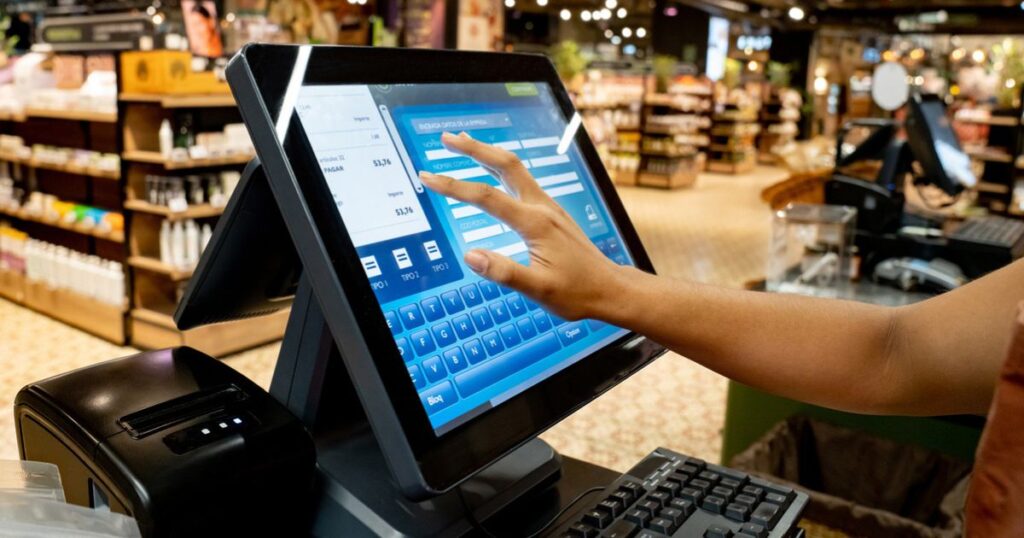POS Systems: The Growth Engine for Modern Entrepreneurs

In today’s rapidly evolving business world, entrepreneurs are constantly looking for ways to streamline operations, boost productivity, and enhance customer experiences. One of the most powerful tools helping modern entrepreneurs achieve these goals is the Point of Sale (POS) system. Once seen as a simple tool for processing payments, today’s POS systems have transformed into comprehensive business management platforms that serve as the growth engine for modern ventures.
1. Beyond Transactions: POS as a Business Management Hub
For many entrepreneurs, the journey starts small—with a single store, a pop-up shop, or an online boutique. But as sales increase and operations expand, managing the various aspects of the business becomes more complex. This is where a modern POS system shines.
Today’s POS solutions are much more than cash registers—they act as all-in-one business hubs, connecting sales, inventory, customer management, and analytics. They provide real-time visibility into how the business is performing, empowering entrepreneurs to make quick and data-driven decisions. Whether it’s tracking which products sell best or managing staff schedules, a POS system simplifies the process, freeing entrepreneurs to focus on growth rather than day-to-day chaos.
2. Streamlined Inventory and Supply Chain Management
One of the biggest challenges for growing businesses is maintaining optimal inventory levels. Overstocking drains capital, while running out of popular items frustrates customers and leads to missed sales. POS systems address this pain point with automated inventory tracking and smart reporting features.
With real-time data on product performance and stock levels, entrepreneurs can easily forecast demand, identify slow-moving products, and reorder efficiently. Many POS systems even sync with suppliers, allowing automatic restocking and reducing manual errors. This level of control ensures that businesses always have the right products available at the right time—fueling consistent sales growth.
3. Enhancing the Customer Experience
In the modern marketplace, customer experience is the ultimate differentiator. A well-implemented POS system helps entrepreneurs deliver a smooth, personalized shopping experience that keeps customers coming back.
From fast checkout processes to integrated loyalty programs and personalized promotions, POS systems make every interaction more meaningful. For example, when a customer returns to make another purchase, the system can recognize their preferences and apply relevant offers. This not only strengthens customer relationships but also encourages repeat business—an essential ingredient for long-term growth.
4. Data-Driven Decision Making
Entrepreneurs thrive on insight—and POS systems deliver exactly that. Every transaction generates valuable data that, when analyzed, reveals patterns and opportunities. With real-time analytics dashboards, entrepreneurs can see which products are performing best, when peak sales hours occur, and how promotions impact revenue.
This data-driven approach takes the guesswork out of business management. Entrepreneurs can use insights from their POS to optimize pricing, plan effective marketing campaigns, and manage staffing more efficiently. Over time, these small, data-informed adjustments compound into significant growth.
5. Enabling Omnichannel Expansion
Modern entrepreneurship often spans multiple channels—physical stores, online shops, marketplaces, and social media platforms. A robust POS system acts as the central nervous system that connects them all.
Cloud-based POS platforms enable seamless integration between in-store and online operations. When a customer buys online and picks up in-store, the system automatically updates inventory and sales data across all channels. This ensures consistency, minimizes stock discrepancies, and creates a unified brand experience. Such omnichannel functionality is essential for entrepreneurs who want to scale beyond a single sales platform.
6. Simplifying Financial and Administrative Tasks
Administrative efficiency is crucial for business scalability. POS systems automate several back-end functions, such as tax calculation, sales reporting, and accounting integration. Entrepreneurs can generate detailed financial reports in seconds, helping them stay compliant and make informed financial decisions.
By integrating with accounting tools like QuickBooks or Xero, POS systems eliminate the need for manual data entry, reducing human error and saving valuable time—time that entrepreneurs can reinvest into innovation and strategy.
Conclusion
For modern entrepreneurs, growth depends on efficiency, insight, and adaptability. POS systems deliver all three. They transform retail operations into streamlined, data-driven ecosystems where every decision and transaction contributes to long-term success.
Whether you’re managing a small boutique, a café, or an expanding e-commerce brand, investing in a powerful POS system is more than a technology upgrade—it’s a strategic move toward sustainable growth. In the modern business landscape, the POS system isn’t just a tool at the counter; it’s the engine that drives entrepreneurial success.






